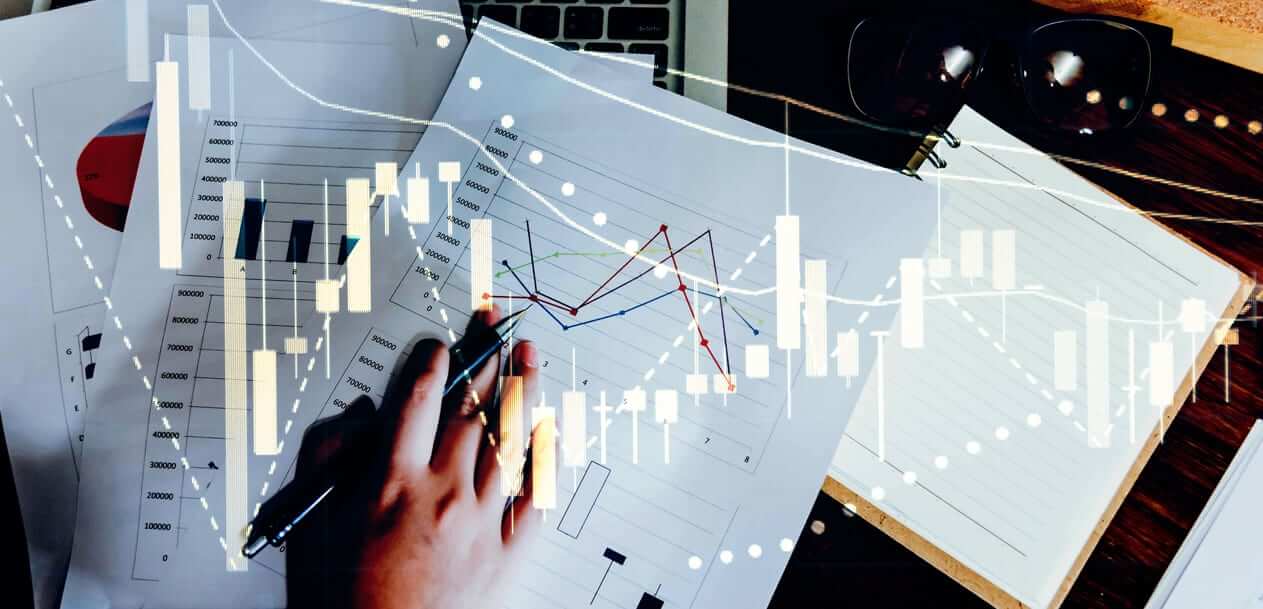There are several methods you can use to determine the relative security and intrinsic value of a nation’s currency. One of these is fundamental analysis. This methodology is harnessed by potential investors to evaluate the relative future of a currency and make decisions based on that analysis.
Today, we’ll be talking about the values that determine fundamental analysis, the reasons for and against it, and the various situations where it can be critical to Forex trading.
When to use fundamental analysis?
The fundamental analysis comes in handy when you’re looking at factors that can’t easily be measured or don’t have any preceding data to compare and contrast with. It can span from macroeconomic factors—like the inflation rate, bank interest rates, trade deficits, and surpluses to microeconomic factors like the country’s GDP and the growth rate of its business investments.
With Forex trading, fundamental analysis comes in handy when there’s heavy speculation about what might happen to a nation’s currency, even if there isn’t anything concrete yet to base a decision against. Anything from a public reaction to a country’s leader or a perceived loss in a country’s export can affect its currency, even if the basis for these impressions isn’t necessarily true. In short, we use fundamental analysis as a way to check how currency prices may change via social, political, economic, and even cultural shifts. It requires a good understanding of geopolitics and macroeconomics to use, along with in-depth research on what drives these changes to occur.
Why should you use fundamental analysis?
Fundamental analysis can bring the quality of the information you consider in crafting your trading strategy to a whole new level. Here are the top three reasons you would want to use fundamental analysis to predict what the market would do:
-
Determining the country’s financial strength
Forex trading often revolves around countries with a strong showing of their financial performance since it’s a safe investment that will have good returns. Fundamental analysis can help establish how well a country can pay back national debts (if it has any) and market research. It also works well in this situation because you have a better grasp on factors outside of market valuation to account for how a country’s currency will trade. While this does require a fair amount of work and research, it gives your predictions a little more accuracy.
-
Figuring out the fair value
Market price vs. intrinsic value is a delicate balancing act in Forex trading. Because the goal is to always find currencies with a lower market price than intrinsic value, it’s critical to cast a wide net to find and secure said currencies before their market value passes the point where it breaks even with their actual value. Otherwise, you may be buying currencies that are going to be invaluable in the long term.
Since the factors that can determine a trade’s fair value aren’t entirely reliant on its past or even current performance, fundamental analysis can help give a clearer picture of what will happen to a country’s currency in the near future.
-
On outperforming competition
Finally, fundamental analysis plays a crucial role in establishing how likely a country or its currency will outperform its neighbouring countries. Competition is one of the most significant factors that drive buying and selling during Forex trading sessions. The factors that make Forex trading more competitive than others aren’t something you can quickly suss out from its overall financial performance.
When should you avoid fundamental analysis?
It’s important to remember that the core of fundamental analysis leans heavily towards a predictive model, not a probable one. This means that while it’s excellent for speculative investments that can lead to better trading, it doesn’t look into the finer points of data. If you’re looking for the probable ways that a currency can swing based on its past performance, then technical analysis works as the better approach. It’s a safer way of managing expectations and coming up with probable outlooks for anything you’re looking to trade.
With fundamental analysis, you gain a better appreciation of the minute and sweeping details that can determine the fair value of anything you want to trade. It’s an excellent way for traders to figure out which currencies they need to buy and sell, and which ones will turn them the most profit.
Start trading with Blueberry. for as low as $100 when you open a live account. We offer very low spreads and lightning-fast trade executions, so you can take advantage of winning opportunities.
Disclaimer: All material published on our website is intended for informational purposes only and should not be considered personal advice or recommendation. As margin FX/CFDs are highly leveraged products, your gains and losses are magnified, and you could lose substantially more than your initial deposit. Investing in margin FX/CFDs does not give you any entitlements or rights to the underlying assets (e.g. the right to receive dividend payments). CFDs carry a high risk of investment loss.




